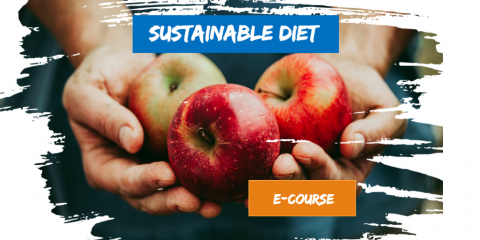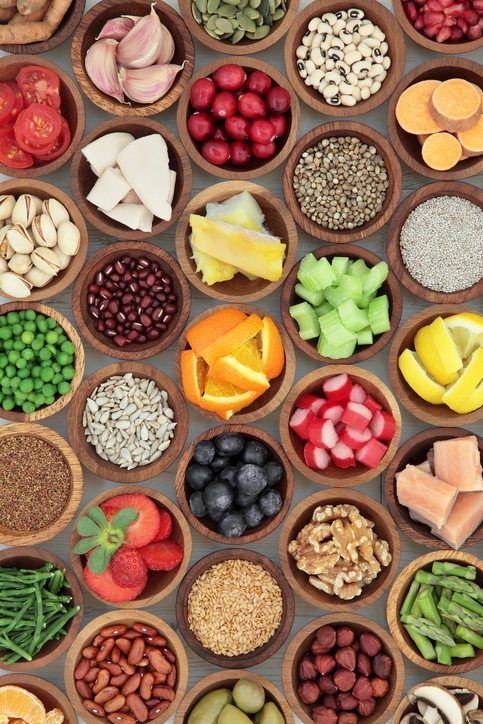
Vegetarians have a lower calorie intake than meat eaters. This is great news for vegans but can also be beneficial for people who have special nutritional needs. If you are pregnant, nursing, or have very small children, you may need extra vitamin B-12, iron, and folic acid. Vegetarians might not be able eat enough fiber. These benefits are outweighed by any potential negatives.
Studies have shown that vegetarians are more likely to have lower levels of blood sugar and to have lower chances of developing diabetes. This diet is especially beneficial for people with high cholesterol. Vegetarians may not be suitable for certain conditions. Talk to your doctor before incorporating this diet into your lifestyle. This diet can also be beneficial for non-vegetarians. A vegan diet has several advantages.

Vegetarians are less likely to develop heart disease. Vegetarians are less likely to develop diabetes and have a lower likelihood of developing cardiovascular disease. While vegetarians don't have to be lactose-intolerant, they are more likely not to consume large amounts of dairy products. A higher intake of folate can help prevent age-related vision problems. Veganism is also more sustainable for the environment. Vegans use fewer natural resources which makes them less harmful to the environment.
Vegetarians are at lower risk of developing cancer and heart disease than meat-eaters. Vegetarians have lower blood pressure. Vegetarian diets can also help to prevent diabetes and improve blood sugar control. It may stabilize blood sugar levels for the long term and help prevent diabetes. Six studies were reviewed and found that a vegetarian diet could improve blood glucose control. It also lowers the chance of developing cardiovascular disease.
Vegetarians may still enjoy dairy products and meat. However, vegetarians are deficient in key nutrients. Omega-3 fatty acids are found in meat and dairy products. These fatty acids have a vital role in our health. And they're rich in fiber, phytochemicals, and minerals. Also, vegetarians may experience more energy and less inflammation. A vegetarian diet can help you save money.

The risk of colon cancer is lower for vegetarians. Because meat lacks fibers, it may be less common for vegetarians to get colon cancer. People with a family that doesn't want meat can opt for a vegetarian diet. For instance, you could order a delivery of vegetarian meals. It is also helpful to consult a dietitian for advice and support. You can be healthier if you are a busy parent.
FAQ
How many calories per day should I consume?
This varies from person to person. The average is 2000 - 2500 calories per day. It's important to assess your life style, gender, age and height in order to determine how much calories you need.
What Is The Best Way To Lose Weight?
It's not easy to lose weight. Many people give in to temptation because they don't know how to proceed.
But there are steps you can follow to shed extra pounds.
First, make sure you eat less calories than you burn. You can gain weight by eating more calories than your body burns.
The second is to get regular exercise in order burn those calories. You have the option of doing jogging or walking or cycling, as well as dancing.
Third, stop smoking cigarettes or drinking alcohol. These habits can cause you to consume more calories that you would otherwise.
Fourth, it is important to reduce the consumption of junk food and fatty foods. They can be replaced by healthier options, such as fruits and vegetables, lean meats or whole grains, legumes, seeds, beans, and nuts.
Fifth, you need to change your lifestyle and adopt new habits. You may have to get up before the rest of the world to exercise.
Sixth, be disciplined and stick to your diet plan.
You can also burn excess calories by joining a gym, or taking an aerobics course.
You'll quickly start to notice results if you follow these simple tips.
What is the purpose of milk for men?
Next time you buy milk think about what you could do with it. It may be a good idea to reduce your coffee intake.
Milk has been proven to be beneficial to both children and adults alike. The nutrients in milk include vitamin D, calcium potassium, phosphorous and magnesium.
It helps with digestion, promotes weight growth, and improves bone strength. Dairy products are more beneficial for adults than any other food.
Also, milk is rich in lactose so people who can't digest this sugar well can still reap the benefits of it without any stomach issues.
Try drinking more milk instead of soda or juice. Drinking milk with more calcium and vitamin A can help to strengthen your teeth.
Plain low-fat yogurt is another option if milk tastes bland to you. Yogurt has lower calories and is richer in protein than milk.
Yogurt also contains probiotics, which aid in digestion and improve immunity.
If you're having trouble sleeping, try taking a glass of warm milk before bedtime. Warm milk helps relax muscles and boosts serotonin levels.
Do Men Need A Gym Membership?
For men, a membership to a gym is not required. However, your money will be more valuable if you join a gym.
Most gyms offer free trial members, which allows you to use the facilities without paying anything.
You can use our gym anytime you like and it's free. You can cancel your membership as soon as you decide whether you love or hate it.
Statistics
- 10 pounds in a month is likely during a lean bulking phase, especially for beginners. (muscleandstrength.com)
- According to the American Academy of Dermatology (AAD), men over 50 are at a heightened risk of developing it. (healthline.com)
- The PRS enabled risk stratification for overall prostate cancer and lethal disease with a four-fold difference between men in the highest and lowest quartiles (HR, 4.32; 95% confidence interval [CI], 3.16-5.89). (pubmed.ncbi.nlm.nih.gov)
- According to the American Heart Association, blood pressure should be checked at least once every two years, beginning at age 20. (my.clevelandclinic.org)
- Cardmembers earn 5% Back at Amazon.com with a Prime Credit Card. (amazon.com)
External Links
How To
How do I lose fat by exercising?
Exercise burns calories by increasing metabolism and oxygen consumption.
If you exercise with moderate intensity, you can safely lose weight.
These tips can help you to burn fat while training:
-
Cardio exercises like walking, running (or jogging), swimming, cycling, running, and/or elliptical training are all good options.
-
Three times per week, exercise for 30 minutes.
-
If you want to lose more weight, add strength training to your routine.
-
Avoid intense exercise. You can build muscle without having to lose muscle tissue.
-
Hydrate well during exercise. Water is essential for flushing out toxins and keeping your body hydrated.
-
After exercising, consume low-fat protein smoothies. Protein shakes can help boost energy and repair muscles.
-
Take smaller meals throughout each day to avoid feeling hungry.
-
Don't skip breakfast! Skipping breakfast can make you tired and sluggish.
-
Take care of yourself mentally. Stressful situations can slow your metabolism.
-
Keep a positive attitude. Studies show that overweight people are more likely to be obese than those who perceive themselves as attractive.
-
Get enough sleep. You will have a harder time losing weight if you do not get enough sleep.
-
Active living is key. Be sure to get up and move around every hour or two.
-
Maintain a healthy diet. A healthy diet will help you feel fuller for longer.
-
Find relaxation techniques. An anxious mind won't allow your body release stress hormones, which can lead to the destruction of muscle tissue.
A balanced diet will provide all nutrients that are necessary for growth.
Six small meals per day is better than three large meals. This gives your body the time it needs to process what you've eat.
Calcium is required to support strong bones. Calcium can also be found in milk products, yogurt, fortified Soy beverages, orange Juice, cereals and bread.
Calcium is found in leafy vegetables, beans and tofu, as well nuts, seeds and cheese.
Vitamin D is required by the body to absorb calcium. Vitamin D is found in certain fortified foods, such as egg yolk and fatty fish.
Vitamin E is important for skin health. Vitamin E can also be found in vegetable oil, wheat germ oils, peanuts as well almonds, sunflower seeds and corn.
Your body requires zinc for normal immune function and wound healing. Zinc is found in oysters, legumes, meats, whole grains, and seafood.
Zinc deficiency can cause fatigue, loss of appetite, depression, and impaired immunity.
Consuming too much sugar can cause insulin resistance. This causes an increase in blood glucose levels. Insulin resistance causes weight gain.
Insulin resistance is caused by high blood levels of free-radicals. Free radicals are molecules containing unpaired electrons which cause damage to cells membranes.
The main sources of free radicals are food additives.
Free radical damage can cause cancer, heart disease and diabetes, as well as arthritis, asthma, and other diseases.
A well-balanced diet rich in antioxidants is the best way for you to avoid free radical damage. Antioxidants protect against oxidative damage.
Vitamin C (found on citrus fruits), Beta carotene, found in carrots and sweet potatoes, spinach and broccoli, cantaloupe (found in tomatoes, mangoes and peppers), and Vitamin E (found nuts, olive oil and avocados).
Additional antioxidant nutrients include selenium and copper, manganese and zinc.
Selenium helps protect cells from oxidative damage caused by free radicals. Selenium may be found in Brazil nuts as well tuna, liver and kidneys. It can also be found on shrimp, cod, turkey, beef lamb, pork, chicken, and other foods.
Copper protects the brain, eyes, lungs, and red blood cells. Copper is also found in poultry, meat, and organs.
Manganese forms an essential part of bone structure. Manganese can be found in brown rice and spinach as well as bananas, prunes raisins, oatmeal, lentils, and oatmeal.
Zinc helps with normal growth, reproduction, as well as wound healing. Zn is found in lean meats, poultry, white fish and eggs.